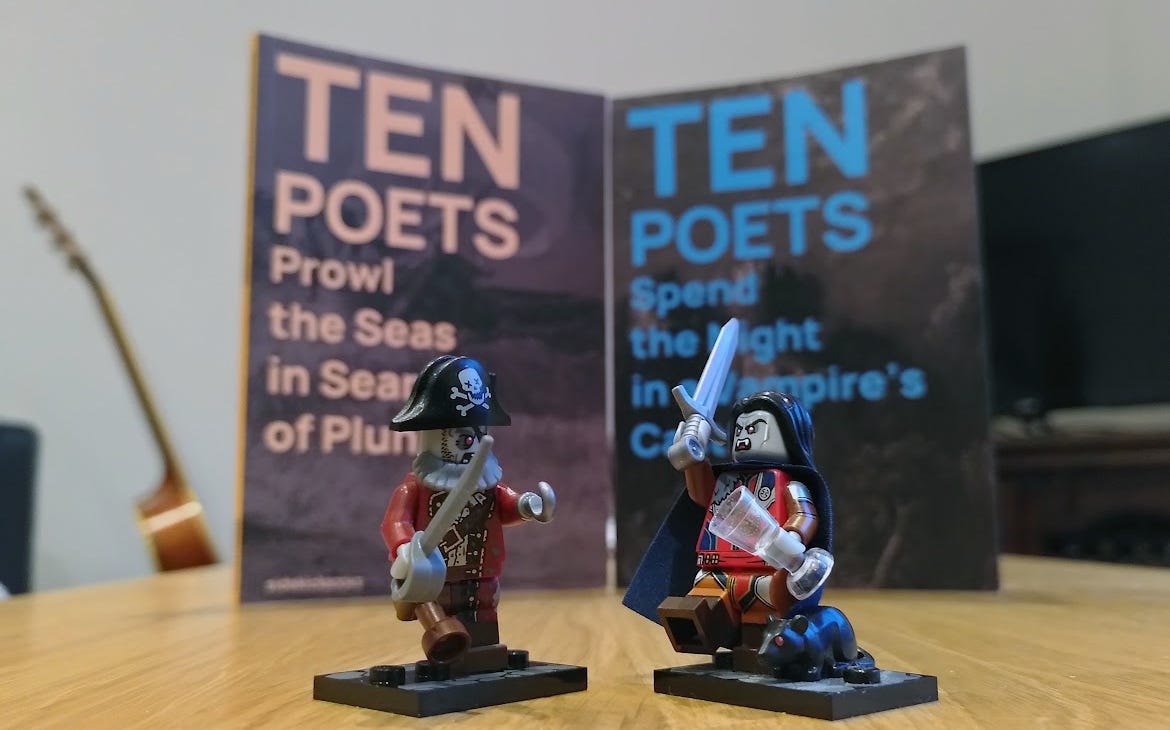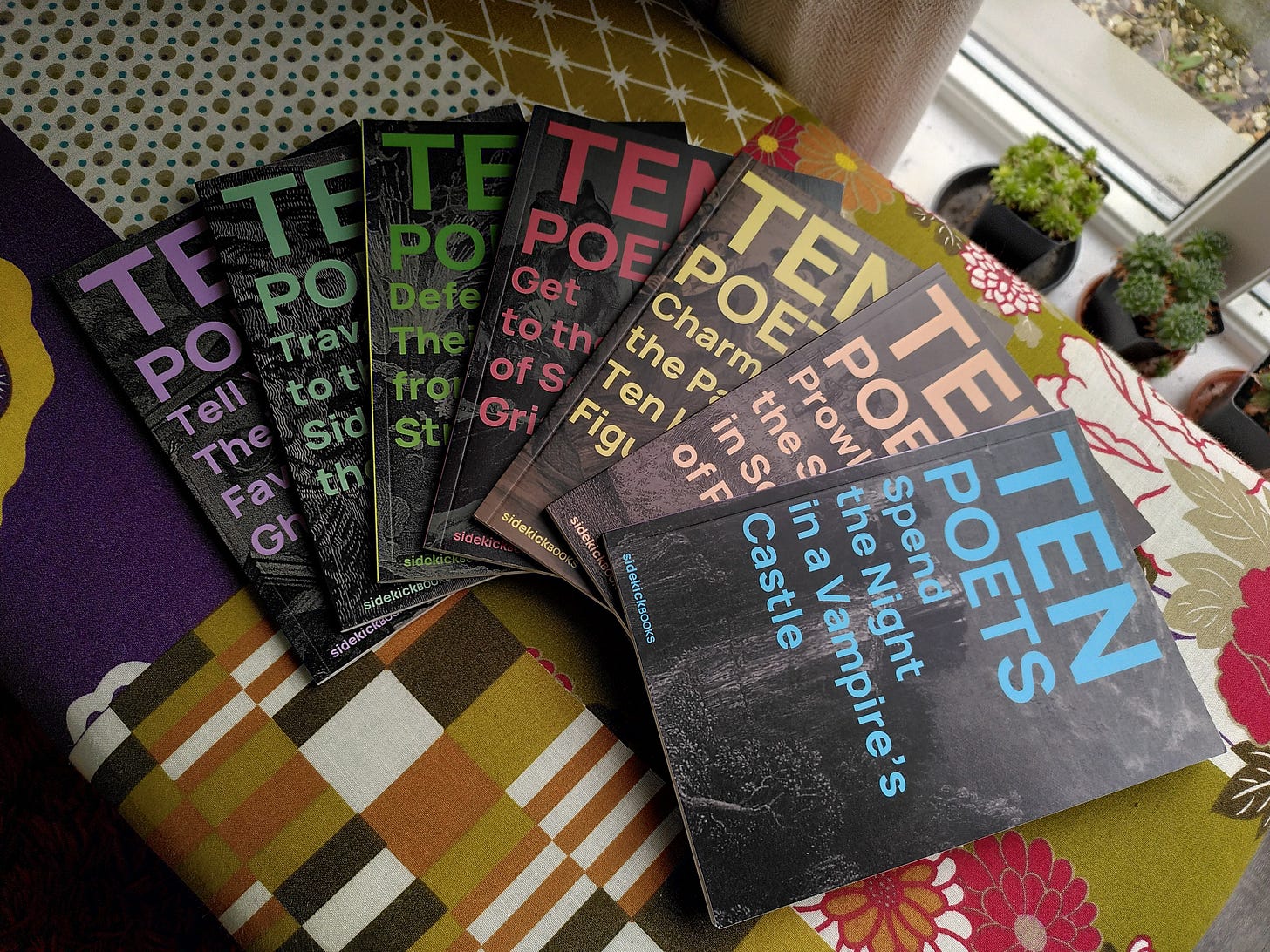The call for submissions for our latest books, the Hipflask Series, is open until 25th October 2021. These are unusual titles, even by Sidekick standards, so we’ve put together a series of short posts, one for each of the four books, breaking down the ideas and influences behind the book and what we’re looking for from you. Today we’re encountering the mixed feelings, tense tangos and dark duels of…

What’s the big idea?
Smeagol: [weeping] “I hate you. I hate you.”
Gollum: “Where would you be without me, uh? Gollum, gollum… I saved us! It was me! We survived because of me!”
Smeagol: [stops crying] “Not anymore.”
– Lord of the Rings: The Two Towers
You Again is a book bursting with romance and rows, magnetism and antagonism, sweet-sorrow partings and good-riddances. Contributors will each write about a person, place, idea, object etc. that both attracts and repulses them, raising both their heart-rate and their blood pressure simultaneously.
Who and what gave us the idea for this book?
Love-hate relationships have been written about since time immemorial. Roman poet Catullus’ in Carmina 85 (Odi Et Amo), wrote:
“I hate and I love. Wherefore I do this, perhaps you ask.
I do not know, but I feel it being done and I am tormented.”
More recently in history, we’ve seen non-romantic examples. Take the fraught dynamic between James Joyce and Dublin, the hometown he fled but could not forget. Or Michael Bluth’s bungee-cord attachment to his dysfunctional family in Arrested Development. Something about these relationships keeps us coming back time and again.
What are we looking for in submissions?
We want your lyrical narrative or critical writing on something you both love and hate. This could be a person, an institution, an abstract concept, or anything else. We want to see the conflict and complexity that characterises these relationships laid out on the page.
For structure, think prose poems and micro lyrical essays. Maximum length if submitting in prose form: 600 words per piece. Maximum length if submitting in verse form: 50 lines per piece, and a maximum of three pieces.
What are we not looking for?
Images, brand names, fleeting trends and adult content. We want the Hipflasks to be as enjoyable 20 years from now as they are today, and we want to take them to as large an audience as possible.
Give us an example.
• William Wilson – Edgar Allan Poe’s short, sharp tale of paranoia and guilty conscience sees the eponymous speaker encounter an identically named man who follows the narrator throughout his life, seemingly to highlight his inadequacies and faults. The speaker begins by being dazzled by the other Wilson, and being mistaken for his brother, but this enchantment gradually turns to loathing and resentment, culminating in tragedy.
• Wuthering Heights (Emily Bronte) – one of the best-known literary love-hate tales. The pendulum of affection between Catherine and Heathcliff swings in the winds of the rough moors, from romance to rage to ruin.
• Here You Come Again (Dolly Parton) – a classic Dolly song about getting back on your feet after heartbreak, only for the heartbreaker to stroll back into town and undo all that hard work by smiling that smile.
• No Children (Mountain Goats) – this lilting, caustic ballad tells of a marriage of mutual, unbreakable loathing. A surprisingly popular song choice for weddings.
Any further questions?
Check the call for submissions in case your answer lies there. If not, email contact[at]sidekickbooks.com or find us on Twitter @SidekickBooks.
 This time we’re dispatching our adventurers to spy and be spirited away with Ten Poets Do Their Bit for the Secret Service and Ten Poets Lose Themselves in the Land of the Fae.
This time we’re dispatching our adventurers to spy and be spirited away with Ten Poets Do Their Bit for the Secret Service and Ten Poets Lose Themselves in the Land of the Fae.
 The full call is here, so firm up your alias, gather your goblin fruit and join us in strange new realms…
The full call is here, so firm up your alias, gather your goblin fruit and join us in strange new realms…


 If you’re not familiar with the
If you’re not familiar with the  If you’re not familiar with the
If you’re not familiar with the 





 This last year has been testing for everyone, but it’s also been a time of discovery. During the pandemic, both Jon and K got assessed for ADHD, and both had the diagnosis confirmed. 2020 was apparently a record year for ADHD diagnosis, and this makes sense – once you’ve had a lot of social engines switched off and you’re left with your thoughts, you often spot things that have been masked by the hectic day-to-day. If you’re curious about late-diagnosis ADHD,
This last year has been testing for everyone, but it’s also been a time of discovery. During the pandemic, both Jon and K got assessed for ADHD, and both had the diagnosis confirmed. 2020 was apparently a record year for ADHD diagnosis, and this makes sense – once you’ve had a lot of social engines switched off and you’re left with your thoughts, you often spot things that have been masked by the hectic day-to-day. If you’re curious about late-diagnosis ADHD,  Getting back into the poetry publishing groove, Sidekick Books recently joined in the fun at the online
Getting back into the poetry publishing groove, Sidekick Books recently joined in the fun at the online  Finally, huge thanks to our amazing sales and marketing agents
Finally, huge thanks to our amazing sales and marketing agents 


